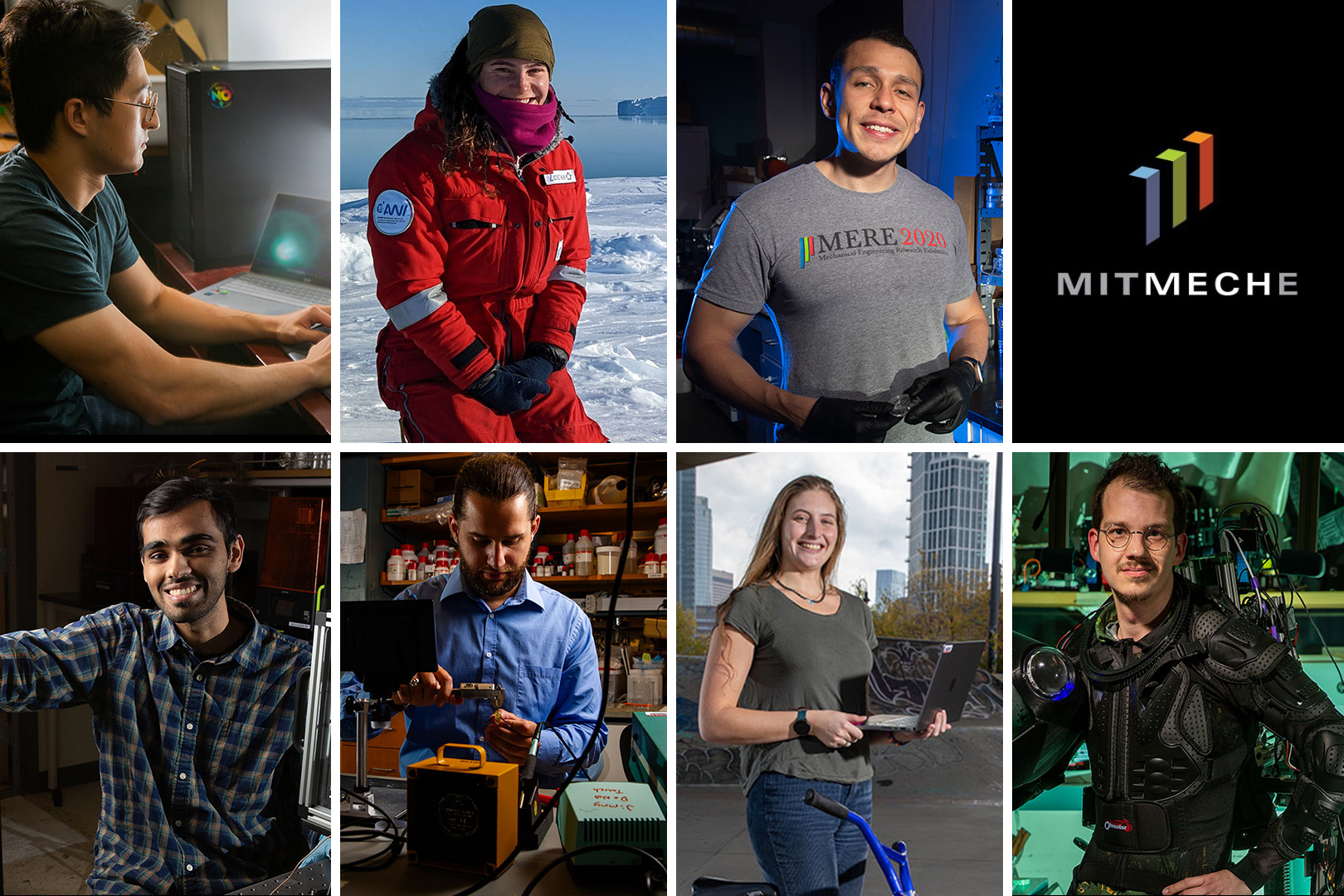
From cutting-edge robotics, design, and bioengineering to sustainable vitality options, ocean engineering, nanotechnology, and progressive supplies science, MechE college students and their advisors are doing extremely progressive work. The graduate college students highlighted right here characterize a snapshot of the good work in progress this spring throughout the Division of Mechanical Engineering, and exhibit the methods the way forward for this area is as limitless because the imaginations of its practitioners.
Democratizing design by way of AI
Lyle Regenwetter
Hometown: Champaign, Illinois
Advisor: Assistant Professor Faez Ahmed
Pursuits: Meals, climbing, snowboarding, soccer, tennis, cooking
Lyle Regenwetter finds pleasure within the prospect of generative AI to “democratize” design and allow inexperienced designers to deal with advanced design issues. His analysis explores new coaching strategies by way of which generative AI fashions might be taught to implicitly obey design constraints and synthesize higher-performing designs. Figuring out that potential designers usually have an intimate data of the wants of customers, however might in any other case lack the technical coaching to create options, Regenwetter additionally develops human-AI collaborative instruments that enable AI fashions to work together and help designers in fashionable CAD software program and actual design issues.
Fixing a whale of an issue
Loïcka Baille
Hometown: L’Escale, France
Advisor: Daniel Zitterbart
Pursuits: Being open air — scuba diving, spelunking, or climbing. Crusing on the Charles River, martial arts lessons, and enjoying volleyball
Loïcka Baille’s analysis focuses on growing distant sensing applied sciences to check and defend marine life. Her major challenge revolves round bettering onboard whale detection know-how to forestall vessel strikes, with a particular concentrate on defending North Atlantic proper whales. Baille can be concerned in an ongoing research of Emperor penguins. Her workforce visits Antarctica yearly to tag penguins and collect knowledge to boost their understanding of penguin inhabitants dynamics and draw conclusions concerning the general well being of the ecosystem.
Water, water wherever
Carlos Díaz-Marín
Hometown: San José, Costa Rica
Advisor: Professor Gang Chen | Former Advisor: Professor Evelyn Wang
Pursuits: New England mountaineering, biking, and dancing
Carlos Díaz-Marín designs and synthesizes cheap salt-polymer supplies that may seize massive quantities of humidity from the air. He goals to alter the way in which we generate potable water from the air, even in arid situations. Along with water technology, these salt-polymer supplies may also be used as thermal batteries, able to storing and reusing warmth. Past the scientific functions, Díaz-Marín is worked up to proceed doing analysis that may have massive social impacts, and that finds and explains new bodily phenomena. As a LatinX particular person, Díaz-Marín can be pushed to assist enhance range in STEM.
Scalable fabrication of nano-architected supplies
Somayajulu Dhulipala
Hometown: Hyderabad, India
Advisor: Assistant Professor Carlos Portela
Pursuits: Area exploration, taekwondo, meditation.
Somayajulu Dhulipala works on growing light-weight supplies with tunable mechanical properties. He’s presently engaged on strategies for the scalable fabrication of nano-architected supplies and predicting their mechanical properties. The flexibility to fine-tune the mechanical properties of particular supplies brings versatility and flexibility, making these supplies appropriate for a variety of functions throughout a number of industries. Whereas the analysis functions are fairly various, Dhulipala is keen about making area liveable for humanity, a vital step towards turning into a spacefaring civilization.
Ingestible health-care units
Jimmy McRae
Hometown: Woburn, Massachusetts
Advisor: Affiliate Professor Giovani Traverso
Pursuits: Something basketball-related: enjoying, watching, going to video games, organizing hometown tournaments
Jimmy McRae goals to drastically enhance diagnostic and therapeutic capabilities by way of noninvasive health-care applied sciences. His analysis focuses on leveraging supplies, mechanics, embedded techniques, and microfabrication to develop novel ingestible digital and mechatronic units. This ranges from ingestible electroceutical capsules that modulate hunger-regulating hormones to units able to steady ultralong monitoring and remotely triggerable actuations from inside the abdomen. The ideas that information McRae’s work to develop units that operate in excessive environments might be utilized far past the gastrointestinal tract, with functions for outer area, the ocean, and extra.
Freestyle BMX meets machine studying
Eva Nates
Hometown: Narberth, Pennsylvania
Advisor: Professor Peko Hosoi
Pursuits: Rowing, operating, biking, mountaineering, baking
Eva Nates is working with the Australian Biking Group to create a device to categorise Bicycle Motocross Freestyle (BMX FS) tips. She makes use of a singular worth decomposition methodology to conduct a principal part evaluation of the time-dependent point-tracking knowledge of an athlete and their bike throughout a run to categorise every trick. The 2024 Olympic workforce hopes to include this device of their coaching workflow, and Nates labored alongside the workforce at their services on the Gold Coast of Australia throughout MIT’s Impartial Actions Interval in January.
Augmenting Astronauts with Wearable Limbs
Erik Ballesteros
Hometown: Spring, Texas
Advisor: Professor Harry Asada
Pursuits: Cosplay, Star Wars, Lego bricks
Erik Ballesteros’s analysis seeks to help astronauts who’re conducting planetary extravehicular actions by way of using supernumerary robotic limbs (SuperLimbs). His work is tailor-made towards design and management manifestation to help astronauts with post-fall restoration, human-leader/robot-follower quadruped locomotion, and coordinated manipulation between the SuperLimbs and the astronaut to carry out duties like excavation and pattern dealing with.
This text appeared within the Spring 2024 version of the Division of Mechanical Engineering’s journal, MechE Connects.
